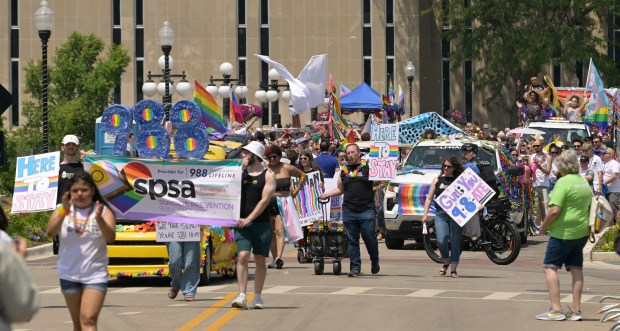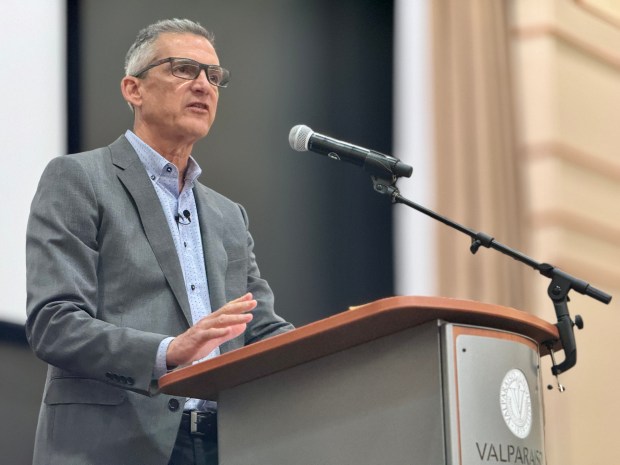As the Sons of Veterans of the Civil War read the Emancipation Proclamation Monday, Indiana University Northwest junior and vice president of the IU Northwest Black Student Union A’Reya Davis said she felt connected to history.
In about two minutes, Davis said the Sons of Veterans of the Civil War, dressed in uniform, recited the Emancipation Proclamation that on June 19, 1865 was read to more than 250,00 enslaved Black people in Galveston Bay, Texas, that they were free by executive decree.
“It was almost as if we were teleported back in time to what our ancestors felt the moment they found out that they were free. They were free of the shackles. They were no longer slaves. They were finally being seen as what they are: human beings,” Davis said. “Hearing the crowd rejoice, it really felt like you were in that moment for a second.”
While the Emancipation Proclamation was made effective in 1863, it did not apply to states under Confederate control, said James Wallace, Director of the IUN Office of Diversity, Equity and Multicultural Affairs.
Juneteenth marks the day Union troops arrived in Galveston Bay Texas, about two and a half years after President Abraham Lincoln signed the Emancipation Proclamation, to tell the enslaved people they were free.
The Thirteenth Amendment, which was ratified Dec. 6, 1865, solidified the Emancipation Proclamation as national policy, Wallace said.
“This is a shared history. This is our collective, American history. Those who ignore the actions of the past are doomed to repeat it, is an often used quote,” Wallace said. “We can’t hide from these things because they lay the foundation of who we are, how our society has been established.”
Ahead of the Sons of Veterans of the Civil War reading, Davis presented the history of how Juneteenth became recognized as a national holiday.
In 2016, Opal Lee, an 89-year-old woman from Fort Worth, Texas, set out to walk 1,400 miles from her Texas hometown to Washington D.C. to encourage Congress to make Juneteenth a national holiday, Davis said.
During the annual event, Lee walked 2.5 miles a day, over the course of several months, until she reached D.C., Davis said.
“I just think that’s so powerful,” Davis said. “She grew up in a time where racial discrimination was rampant. It was everywhere. But yet, she still persevered. She still was set in her ways that no, we as a people have rights. We have feelings. We are human beings, therefore we deserve to be treated as human beings.”
Davis said she didn’t learn a lot about Black history in elementary school and high school. Instead, her father taught her all she knows about Black history, including Juneteenth about four years ago.
“That isn’t something that should be happening because this is a part of our history. Although it may be painful to hear about it … the more you bury it the more likely we are to repeat things that happen in history,” Davis said.
For her, Juneteenth serves as a reminder, Davis said, that the Black community has to continue pushing forward for civil rights.
“What was done in history was atrocious, and a lot of times we ignore it because it was such heinous acts. But, I feel like this holiday is just a reminder to everyone that we’re getting one step closer to equality,” Davis said.
Davis said those who first heard the Emancipation Proclamation on June 19, 1865 would likely be happy to see commemorations like Monday’s event and in disbelief about how far the county has come in terms of racial equality.
“Our times are drastically different from their times. Now, there are some aspects that are similar; we just find different ways to perpetuate the same problems. But, I think if those who were there for the original proclamation being read, I think that they would be so happy to see how far we’ve come,” Davis said.





